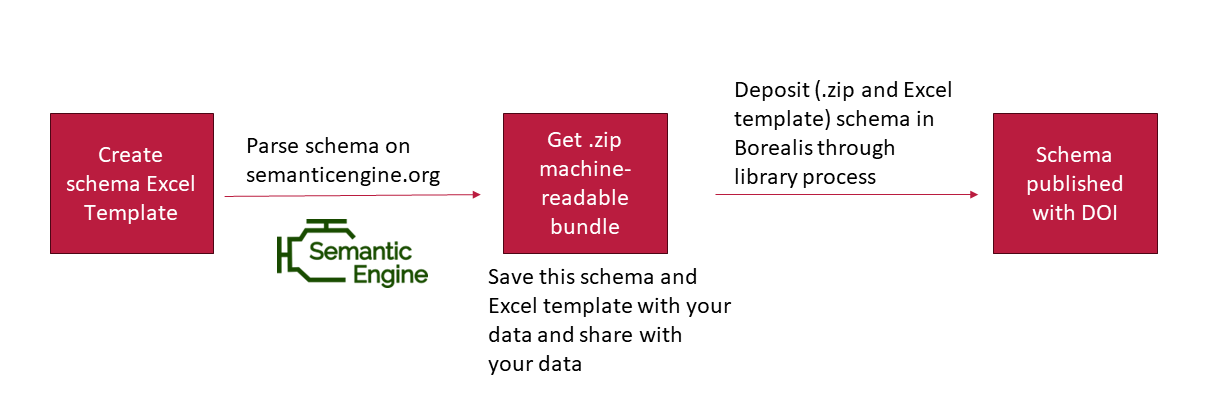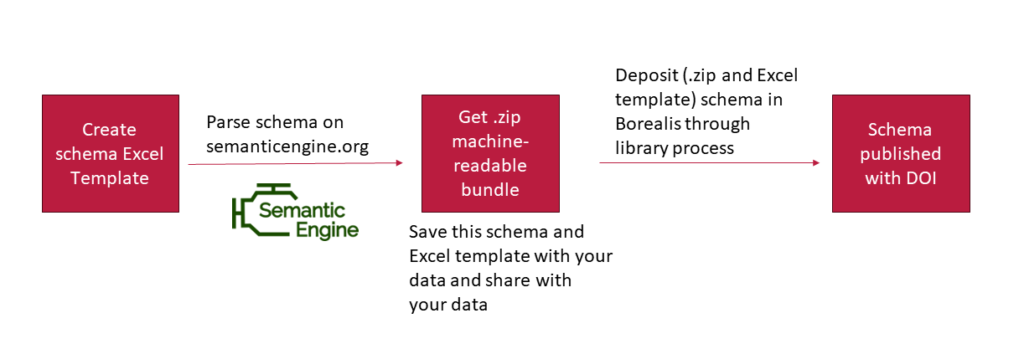
Crafting Effective Machine-Actionable Schemas with SemanticEngine.org
In the realm of data analysis, having well-structured and clear data is fundamental for meaningful insights. Data schemas provide a blueprint for understanding and organizing datasets. In today’s digital landscape, where automation and machine-readability are vital, machine-actionable schemas offer enhanced utility. This blog post will guide you through the process of creating a machine-actionable schema using SemanticEngine.org, a user-friendly platform. We’ll explore how to develop such schemas step by step and the benefits of utilizing the Overlays Capture Architecture (OCA) for better data management.
The Practicality of Machine-Actionable Schemas
Think of a schema as a roadmap that navigates you through your data landscape. Machine-actionable schemas take this up a notch by making the schema easily understandable for computers. The advantages range from ensuring data accuracy to streamlining data integration and analysis.
Getting Started: Crafting Your Machine-Actionable Schema
SemanticEngine.org simplifies schema creation through a tutorial on crafting an Excel Template schema. Before you begin, have a clear picture of your dataset or the data you intend to collect. Decide on concise attribute names, avoiding spaces and complex characters to maintain clarity and consistency.
Overlays Capture Architecture (OCA) is the language that SemanticEngine.org uses to express your schema. It allows flexibility to schema design, such as having descriptive labels for your schema attributes. These labels provide context and descriptive information, ensuring accessibility for diverse users. This feature enriches the schema’s comprehensibility. OCA also has features such as adding units to your schema attributes, descriptions to help users understand attributes and more.
A Gradual Approach to Schema Improvement
The flexibility of OCA enables you to start with a basic schema and add details as your project progresses. This adaptable approach accommodates evolving project needs without overwhelming you with upfront complexity.
Creating the Machine-Actionable Version
SemanticEngine.org‘s parser transforms your Excel Template schema into an official OCA Bundle. This bundle compiles all schema features into machine-readable JSON format, packaged as a .zip file.

Future Developments and the OCA Standard
SemanticEngine.org aims to expand beyond Excel Templates and introduce additional functionalities. The OCA Bundle adheres to the OCA Open Standard hosted by the Human Colossus Foundation. This standardization ensures compatibility and interoperability within the data ecosystem.
Contributing to the OCA Standard
For those interested in shaping OCA’s future, participating in OCA Standard meetings offers an avenue for contribution. By sharing insights, you can contribute to refining this open standard.
SemanticEngine.org empowers researchers with practical tools to create machine-actionable schemas. By simplifying schema creation and incorporating OCA, SemanticEngine.org facilitates efficient, accurate, and collaborative data-driven research. Delve into the world of machine-actionable schemas and optimize your data management with SemanticEngine.org.
Written by Carly Huitema



